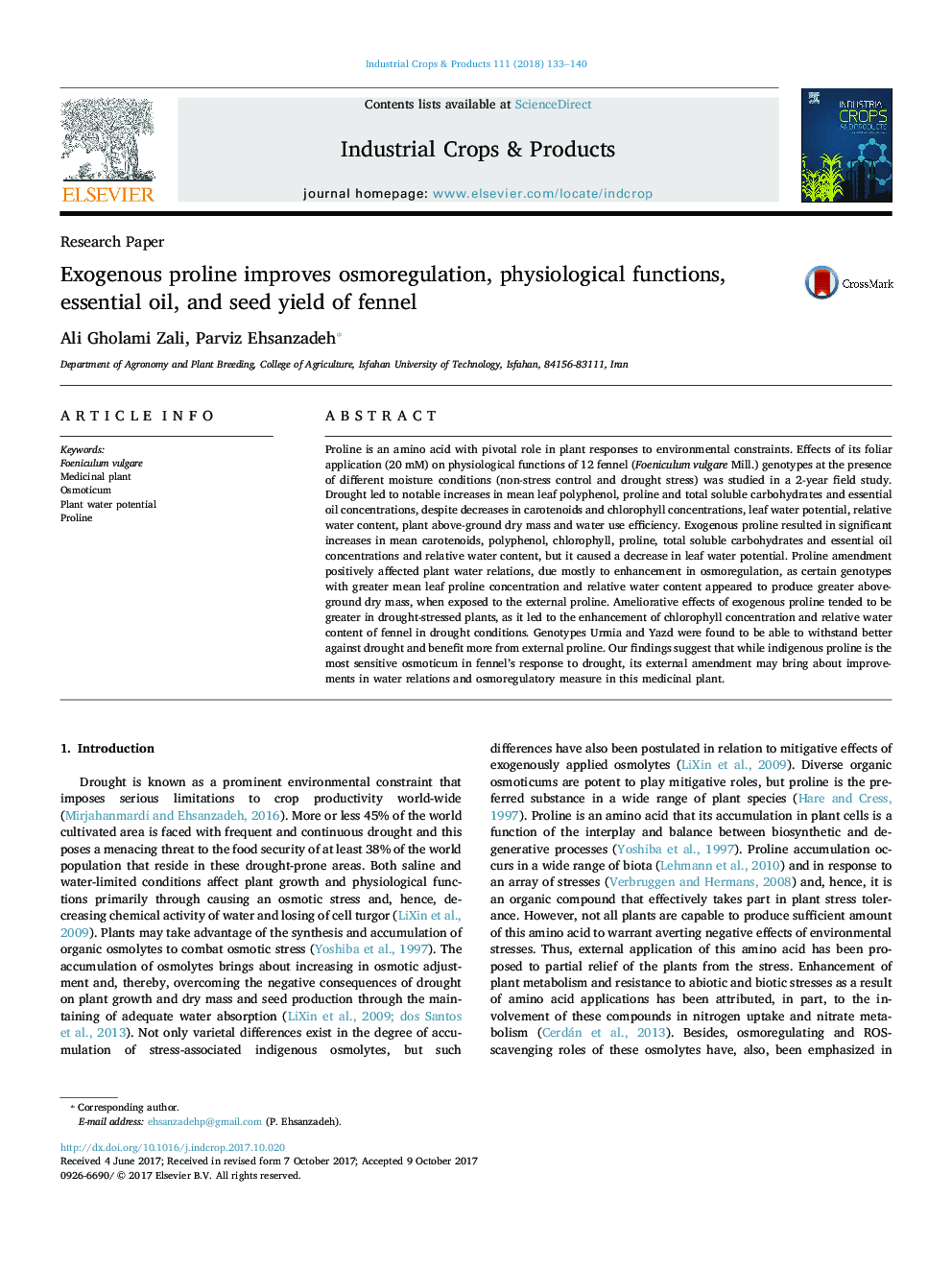| Article ID | Journal | Published Year | Pages | File Type |
|---|---|---|---|---|
| 5761634 | Industrial Crops and Products | 2018 | 8 Pages |
Abstract
Proline is an amino acid with pivotal role in plant responses to environmental constraints. Effects of its foliar application (20Â mM) on physiological functions of 12 fennel (Foeniculum vulgare Mill.) genotypes at the presence of different moisture conditions (non-stress control and drought stress) was studied in a 2-year field study. Drought led to notable increases in mean leaf polyphenol, proline and total soluble carbohydrates and essential oil concentrations, despite decreases in carotenoids and chlorophyll concentrations, leaf water potential, relative water content, plant above-ground dry mass and water use efficiency. Exogenous proline resulted in significant increases in mean carotenoids, polyphenol, chlorophyll, proline, total soluble carbohydrates and essential oil concentrations and relative water content, but it caused a decrease in leaf water potential. Proline amendment positively affected plant water relations, due mostly to enhancement in osmoregulation, as certain genotypes with greater mean leaf proline concentration and relative water content appeared to produce greater above-ground dry mass, when exposed to the external proline. Ameliorative effects of exogenous proline tended to be greater in drought-stressed plants, as it led to the enhancement of chlorophyll concentration and relative water content of fennel in drought conditions. Genotypes Urmia and Yazd were found to be able to withstand better against drought and benefit more from external proline. Our findings suggest that while indigenous proline is the most sensitive osmoticum in fennel's response to drought, its external amendment may bring about improvements in water relations and osmoregulatory measure in this medicinal plant.
Related Topics
Life Sciences
Agricultural and Biological Sciences
Agronomy and Crop Science
Authors
Ali Gholami Zali, Parviz Ehsanzadeh,
